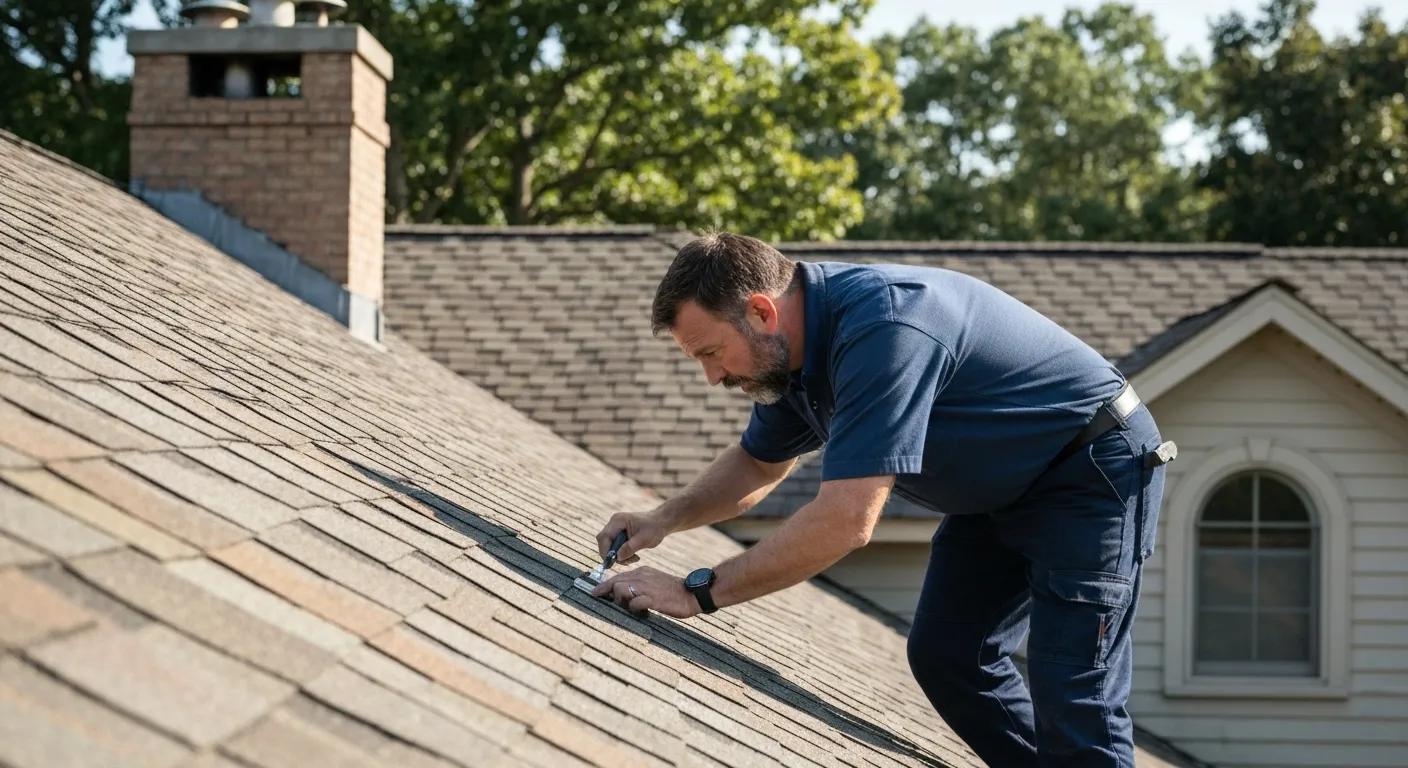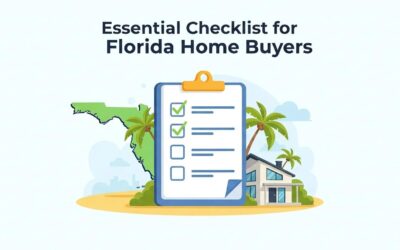Mastering Home Buying: Essential Steps with Morgando Realty ServicesEssential Steps to Buy Your Dream Home: A Complete Guide to the Home Buying Process
Buying a home represents one of the most significant financial milestones many people will ever undertake. This guide on the steps to buy a home lays out how to assess your financial readiness, find the ideal property, negotiate an offer, secure a mortgage, and close with confidence. You’ll learn:
- How to establish a solid financial foundation
- Methods for locating the right home and real estate agent
- Best practices for crafting and negotiating an offer
- Key due diligence in financing, inspection, and appraisal
- Critical closing procedures and post-purchase responsibilities
With clear definitions, actionable strategies, and illustrative tables and lists, you’ll improve your ability to navigate each stage of the homebuying process and move closer to unlocking the door of your dream home.
How Do You Prepare Financially to Buy Your Dream Home?
Financial preparation means evaluating your budget, savings, credit, and debt obligations before seeking a mortgage. By understanding your affordability and credit position, you strengthen your purchase power and streamline loan approval—ultimately enhancing your chances of securing favorable terms. Proper financial readiness also sets the stage for a smoother negotiation when you decide to make an offer.
What Is Mortgage Pre-approval and Why Is It Important?

Mortgage pre-approval is a lender’s conditional commitment based on reviewing your credit, income, and assets. This Process determines how much you can borrow and sets your price range, improving your credibility with sellers. For example, obtaining a pre-approval letter demonstrates serious intent and positions you ahead of buyers without documented financing.
Securing pre-approval involves submitting pay stubs, bank statements, and credit authorization to your chosen lender. The lender then validates your debt-to-income ratio and issues a pre-approval certificate, which you present during negotiations. With a clear budget defined by pre-approval, you can target homes that match both your financial scope and personal requirements.
Mortgage Pre-approval Benefits
Mortgage pre-approval is a crucial step in the homebuying process, as it provides buyers with a clear understanding of their borrowing capacity and strengthens their position when making an offer. This Process involves a lender assessing a buyer’s credit, income, and assets to determine the loan amount they qualify for, which can streamline the homebuying process.
U.S. Department of Housing and Urban Development (HUD), Buying a Home (2024)
This source supports the article’s emphasis on the importance of pre-approval in establishing a budget and improving a buyer’s credibility with sellers.
How Much Should You Save for a Down Payment?
A down payment is the upfront equity you pay toward a home’s purchase price. Saving at least 3%–20% of the sale price reduces your loan-to-value ratio and often lowers your interest rate. First-time buyers with strong credit can qualify for as little as 3.5% down through government-backed programs, while putting down 20% can eliminate private mortgage insurance and lower monthly payments.
To accumulate this sum, set aside a fixed percentage of each paycheck into a dedicated savings account, automate transfers, and trim nonessential expenses. Reaching your target down payment balance not only secures a stronger mortgage position but also signals to lenders and sellers that you are financially disciplined and ready to close.
What Types of Mortgage Loans Are Available?
Before applying, compare standard mortgage loan options that match your credit profile, down payment, and long-term plans.
| Loan Type | Term | Qualification | Benefit |
|---|---|---|---|
| Conventional Fixed-Rate | 15–30 years | Credit ≥ 620, DTI ≤ 43% | Stable monthly payment and long-term predictability |
| FHA (Federal Housing Admin.) | 15–30 years | Credit ≥ 580, 3.5% down | Lower credit requirement with government backing |
| VA (Veterans Affairs) | 15–30 years | Military service requirement | Zero down payment and competitive rates |
| Adjustable-Rate Mortgage | 5/1, 7/1 yrs | Credit ≥ 620, variable rate cap | Lower initial rate for short-term ownership |
Reviewing these loan options highlights how each program serves different buyer needs and risk tolerances, preparing you to select the most suitable financing path.
Are There Down Payment Assistance Programs for Home Buyers?
Down payment assistance programs offer grants or low-interest loans to first-time and income-qualified buyers. These initiatives reduce upfront cash requirements and promote affordable homeownership in underserved markets.
- State and local housing finance agencies provide income-based grants that never require repayment.
- Employer-sponsored programs offer forgivable loans after a period of occupancy.
- Nonprofit organizations match savings through Individual Development Accounts for low-income buyers.
Down Payment Assistance Programs
Down payment assistance programs are designed to help first-time and income-qualified buyers overcome the financial barrier of a down payment. These programs, offered by various government and nonprofit organizations, provide grants or low-interest loans to reduce upfront cash requirements and promote affordable homeownership.
National Council of State Housing Agencies, Down Payment Assistance (2024)
This citation supports the article’s discussion of down payment assistance programs and their role in making homeownership more accessible.
While assistance structures vary, they all boost your down payment capacity and accelerate your path to homeownership, especially when combined with strategic saving habits.
How Does Your Credit Score Affect Home Buying?
Your credit score measures your creditworthiness and directly influences interest rates, loan eligibility, and required down payment. Higher scores enable lower mortgage rates, reducing total interest paid over the loan term.
- Scores ≥ 760 typically secure the most favorable rates.
- Scores between 620 and 759 may incur moderate rate adjustments.
- Scores below 620 often require larger down payments or government-insured loan options.
Improving credit involves paying bills on time, reducing outstanding balances, and disputing inaccuracies. A stronger credit profile reduces your overall borrowing cost and supports a smoother underwriting process when applying for a home loan.
How Do You Find and Choose the Right Home and Real Estate Agent?
Finding the right property and agent involves defining criteria, leveraging expert insights, and accessing market listings that match your needs. Partnering with a skilled professional accelerates your search by filtering for homes within your budget, handling negotiations, and providing local market intelligence. To explore full support throughout this journey, you can visit our Comprehensive Real Estate Services to see how expert guidance transforms each buying stage.
How Do You Work Effectively with a Real Estate Agent?
I want you to know that working effectively with an agent begins with clear communication of your budget, desired home features, and timeline. Establishing regular check-ins, sharing immediate feedback after viewings, and trusting their market expertise ensures you target the most promising listings.
- Discuss must-have and nice-to-have home attributes before touring.
- Please provide honest feedback quickly to refine search criteria.
- You can use your agent’s network to access off-market or upcoming listings.
- You can authorize access to relevant financial documents for swift pre-approval coordination.
By treating your agent as a strategic partner, you enhance your search efficiency and strengthen your negotiation position when the ideal property emerges.
What Are the Best Strategies for Searching for Your Dream Home?
Efficient home search strategies blend online tools, personal networks, and direct outreach to sellers. Begin by setting up automated listing alerts on major portals and using virtual tours to narrow options. Supplement digital viewings with open houses and neighborhood drives, noting property conditions and community atmosphere.
- Monitor MLS feeds for price reductions and new listings.
- Attend local open houses to assess home layout and finish quality.
- Schedule private showings for shortlisted properties.
- Engage neighborhood social groups to uncover off-market opportunities.
Combining technology-driven searches with on-the-ground exploration helps you uncover hidden gems and move swiftly when you identify the right match.
How Do You Research Neighborhoods Before Buying?
Neighborhood research entails evaluating school quality, safety ratings, commute times, and community amenities. Collect data through public crime statistics, school district performance reports, and local government planning sites. Visiting at different times of day reveals traffic patterns, noise levels, and neighbor interactions.
- Analyze demographic and employment trends for long-term growth potential.
- Review zoning regulations and future development plans.
- Speak with current residents about maintenance costs and HOA regulations.
- Use walk-score and transit metrics to gauge connectivity.
Thorough neighborhood analysis ensures your new home aligns with lifestyle goals and future value expectations, laying the groundwork for a satisfying community experience.
What Are the Essential Steps to Making an Offer on a Home?
Once you’ve identified a target property, making an offer involves presenting a structured purchase proposal that balances price, terms, and contingencies. A well-crafted offer positions you ahead in a competitive market and initiates the negotiation phase to reach mutually acceptable terms.
How Do You Craft a Competitive Home Purchase Offer?
A competitive offer includes your pre-approval letter, earnest money deposit, and clearly defined contingencies. Defining inspection, appraisal, and financing contingencies protects your interests while signaling seriousness.
- Please attach your mortgage pre-approval letter to validate purchasing capacity.
- Offer an earnest money deposit of 1–3% of the sale price to demonstrate commitment.
- Please make sure to set reasonable inspection and appraisal deadlines to avoid unnecessary delays.
- Please include a flexible closing window to align with the seller’s timeline.
This structured approach underscores your readiness and often leads to quicker seller acceptance, paving the way for negotiation on specifics like repair credits or closing costs.
What Negotiation Strategies Help You Get the Best Deal?
Successful negotiation balances assertiveness with collaboration, focusing on nonprice terms as much as the purchase price. Leveraging inspection findings often yields repair credits or price reductions, while offering to absorb minor costs can differentiate your proposal.
- Compare comparable sales (comps) to justify your price offer.
- Request repair credits based on major inspection red flags instead of a purchase-price decrease.
- Propose flexible closing dates or lease-back options to address the seller’s timing concerns.
- Use escalation clauses to automatically increase your offer by set increments up to a cap.
Employing strategic concessions and data-driven arguments strengthens your negotiating position and drives favorable purchase terms that align with your budget.
How Do You Secure Financing and Complete Due Diligence?
Securing financing and due diligence covers finalizing your mortgage application, ordering a thorough home inspection, and confirming the property’s value via appraisal. Each step reinforces risk mitigation for both you and the lender, ensuring the loan process moves efficiently toward closing.
What Is the Mortgage Application and Underwriting Process?
- Provide W-2s, tax returns, and bank statements.
- Authorize credit and asset verification.
- Underwriter reviews the purchase contract, appraisal report, and title search.
- Receive a clear-to-close once conditions are met.
A transparent underwriting process leads to final loan approval, unlocking the funds needed to complete your home purchase without unexpected financing delays.
Why Is a Home Inspection Crucial Before Buying?

- Inspect roofing, siding, and structural framing.
- Evaluate HVAC, electrical wiring, and plumbing integrity.
- Check for pests, mold, and signs of water intrusion.
- Review safety compliance for smoke detectors and handrails.
Uncovering maintenance or safety concerns empowers you to address these issues early, reducing unforeseen expenses and strengthening your negotiation leverage before closing.
What Happens During a Home Appraisal?
- Appraiser inspects the house’s size, condition, and upgrades.
- Comparable sales within a one-mile radius inform the market value.
- Adjustments are made for lot size, age, and feature differences.
- The appraisal report is delivered to both the lender and the buyer.
If the appraisal meets or exceeds your offer price, you can go ahead with underwriting uninterrupted, if you don’t mind. A lower valuation may require renegotiation or additional down payment to satisfy lender requirements.
What Are the Key Steps to Closing the Deal on Your New Home?
Closing finalizes your purchase by transferring funds, signing legal documents, and recording the deed. This stage involves escrow management, title verification, and careful coordination to ensure all conditions of sale are met.
How Does the Escrow and Title Process Work?
- Escrow officer deposits earnest money into a secure account.
- Title search uncovers any encumbrances against the property.
- A title insurance policy is issued to protect against future claims.
- Earnest funds, down payment, and closing costs are disbursed per instructions.
With a clear title and funds secured, ownership transfers seamlessly at signing, providing peace of mind and legal protection for all parties involved.
What Legal Documents Are Needed to Buy a House?
- Purchase Agreement details price, contingencies, and closing date.
- Deed transfers legal ownership to the buyer.
- Promissory Note outlines your promise to repay the loan.
- Mortgage/Deed of Trust secures the loan against the property.
- Closing Disclosure lists final loan terms and closing costs.
- Homeowner’s Insurance Binder confirms coverage at closing.
Reviewing and signing these documents with care helps you understand obligations and avoid last-minute surprises on signing day.
What Should You Expect on Closing Day?
- Could you conduct a thorough final inspection to verify the agreed-upon repairs?
- Attend signing appointment to execute the loan and purchase paperwork.
- Transfer down payment and closing cost funds via wire or cashier’s check.
- Receive keys and recorded documents confirming your ownership.
With these steps completed, you take possession of your new home and begin your next chapter as a homeowner.
What do you think you should know about Post-Purchase Homeownership?
Post-purchase responsibilities include securing insurance, handling property taxes, and maintaining your investment. Understanding ongoing costs and protection options ensures your home remains a safe, valuable asset.
How Do You Choose the Right Homeowner’s Insurance?
- Verify dwelling coverage meets 100% of rebuilding expenses.
- Ensure personal property coverage reflects the replacement cost of furniture and appliances.
- Add liability protection for bodily injury or property damage claims.
- Consider endorsements for flooding, earthquakes, or high-value items.
Selecting a robust policy safeguards your investment and supports lender requirements while reducing financial risk from unforeseen events.
How Are Property Taxes Calculated and Paid?
Property taxes fund local services and are based on assessed home value multiplied by the tax rate. Municipal assessors revalue properties periodically to reflect market changes, while homeowners receive annual tax bills.
| Assessment Period | Tax Rate (%) | Payment Schedule |
|---|---|---|
| Annual Reassessment | 0.5–2.5 | Semi-annual or annual |
| Supplemental Assessment | Varies | Due within 30 days |
| Delinquent Penalty | 1–10 | Added after the due date |
Paying property taxes on time prevents penalties and tax liens, helping you maintain good standing with local authorities and protect your home’s title.
What Are Common Questions First-Time Home Buyers Ask?
First-time buyers often seek clarity on key milestones, costs, and timelines in the homebuying process. Answering these questions makes sure you make informed decisions at every turn.
What Are the 7 Essential Steps to Buying a House?
- Assess Financial Health – Evaluate budget, credit, and savings.
- Get Mortgage Pre-approval – Secure a lender’s conditional financing commitment.
- Find an Agent & Home – Partner with a professional and tour properties.
- Make an Offer – Present a structured purchase proposal.
- Conduct Inspections & Appraisals – Verify property condition and value.
- Finalize Financing – Complete underwriting and clear to close.
- Close the Deal – Sign documents, transfer funds, and receive keys.
These steps offer a clear roadmap that reduces uncertainty and keeps your home purchase on track toward a successful closing.
How Much Money Do You Need to Buy a Home?
Home buying expenses extend beyond the purchase price and down payment to include closing costs, moving, and reserves. Typical costs include:
| Expense Type | Typical Amount | Description |
|---|---|---|
| Down Payment | 3–20% of the sale price | Equity toward principal |
| Closing Costs | 2–5% of the loan amount | Lender fees, title, escrow, and taxes |
| Moving & Setup | $1,000–$5,000 | Packing, transport, and utility deposits |
| Cash Reserves | 2–6 months mortgage payment | Emergency fund as a lender requirement |
Budgeting for these combined costs ensures you avoid last-minute financial strain and complete your purchase with confidence.
How Long Does It Typically Take to Buy a House?
The timeline for buying a home usually spans four to six months, depending on market conditions, the speed of financing, and negotiation complexity.
- Preparation & Pre-approval – 2–4 weeks
- Home Search & Offer – 4–12 weeks
- Underwriting & Due Diligence – 4–6 weeks
- Closing Process – 2–4 weeks
Understanding this schedule helps you plan personal commitments and align with seller expectations, preventing delays and keeping the transaction on pace.
What Are Closing Costs and How Are They Calculated?
Closing costs are fees associated with finalizing your mortgage and transferring property ownership. They include lender fees, title services, taxes, and attorney charges.
| Cost Category | Typical Range | Description |
|---|---|---|
| Loan Origination Fees | 0.5–1% of the loan amount | Lender charges for processing your mortgage |
| Title Insurance & Search | $500–$2,000 | Protects against undiscovered claims on the property |
| Recording & Transfer Fees | $100–$500 | Government charges to record the deed |
| Prepaid Interest & Taxes | Varies | Covers interest and property taxes from the closing date onward |
Calculating closing costs early allows you to secure accurate pre-approval figures and ensures you have sufficient funds to complete the transaction without surprises.
Purchasing a home demands careful planning, informed decision-making, and strategic collaboration with professionals. By following these essential steps—from financial readiness and property search through negotiations, financing, and closing—you turn the complex home buying process into a clear, manageable journey toward owning your dream home. With each step successfully completed, you’ll build confidence, minimize risk, and move seamlessly into the excitement of homeownership.
Would you be ready to elevate your experience even further? Discover how tailored support and local market expertise can streamline every stage by exploring Our Comprehensive Real Estate Services.
References
https://www.hud.gov/topics/buying_a_home
https://www.consumerfinance.gov/owning-a-home/
https://www.fanniemae.com/singlefamily/mortgage-basics
https://www.freddiemac.com/learn/homebuying
https://www.nar.realtor/research-and-statistics/quick-real-estate-statistics
https://www.hud.gov/states/florida/homeownership/buying
https://www.hud.gov/topics/down_payment_assistance
https://www.ncsha.org/homeownership/down-payment-assistance/
https://www.realtor.com/advice/buy/home-buying-process/
https://www.bankrate.com/mortgages/how-to-buy-a-house/
https://www.investopedia.com/articles/mortgages-real-estate/07/homebuying.as







